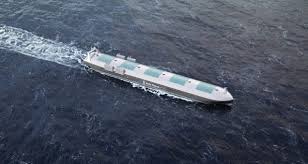
Breaking News
 Dr Pollan at Harvard has cured schizophrenia using keto diet
Dr Pollan at Harvard has cured schizophrenia using keto diet
 We are winning. Big Pharma is finding it too difficult to get new vaccines approved under Trump
We are winning. Big Pharma is finding it too difficult to get new vaccines approved under Trump
 Abortion drugs discovered in Bill Gates' vaccines
Abortion drugs discovered in Bill Gates' vaccines
 Ask yourself how we've gotten here, then ask yourself why no one seems to care.
Ask yourself how we've gotten here, then ask yourself why no one seems to care.
Top Tech News
 Drone-launching underwater drone hitches a ride on ship and sub hulls
Drone-launching underwater drone hitches a ride on ship and sub hulls
 Humanoid Robots Get "Brains" As Dual-Use Fears Mount
Humanoid Robots Get "Brains" As Dual-Use Fears Mount
 SpaceX Authorized to Increase High Speed Internet Download Speeds 5X Through 2026
SpaceX Authorized to Increase High Speed Internet Download Speeds 5X Through 2026
 Space AI is the Key to the Technological Singularity
Space AI is the Key to the Technological Singularity
 Velocitor X-1 eVTOL could be beating the traffic in just a year
Velocitor X-1 eVTOL could be beating the traffic in just a year
 Starlink smasher? China claims world's best high-powered microwave weapon
Starlink smasher? China claims world's best high-powered microwave weapon
 Wood scraps turn 'useless' desert sand into concrete
Wood scraps turn 'useless' desert sand into concrete
 Let's Do a Detailed Review of Zorin -- Is This Good for Ex-Windows Users?
Let's Do a Detailed Review of Zorin -- Is This Good for Ex-Windows Users?
 The World's First Sodium-Ion Battery EV Is A Winter Range Monster
The World's First Sodium-Ion Battery EV Is A Winter Range Monster
 China's CATL 5C Battery Breakthrough will Make Most Combustion Engine Vehicles OBSOLETE
China's CATL 5C Battery Breakthrough will Make Most Combustion Engine Vehicles OBSOLETE
Fully Autonomous Ships Almost Here

IEEE Spectrum says, Forget Autonomous Cars—Autonomous Ships Are Almost Here.
My colleagues and I at Rolls-Royce anticipate that the first commercial vessel to navigate entirely by itself could be a harbor tug or a ferry designed to carry cars the short distance across the mouth of a river or a fjord and that it or similar ships will be in commercial operation within the next few years. And we expect fully autonomous oceangoing cargo ships to be routinely plying the world's seas in 10 or 15 years' time.
That people should be seriously interested in robotic ships is easy enough to explain: Such ships are expected to be safer, more efficient, and cheaper to run. According to a report published by the Munich-based insurance company Allianz in 2012, between 75 and 96 percent of marine accidents are a result of human error, often a result of fatigue. Remotely controlled and autonomous ships would reduce the risk of such mistakes and along with it the risk of injury and even death to crew members, not to mention the dangers to the ship itself.



